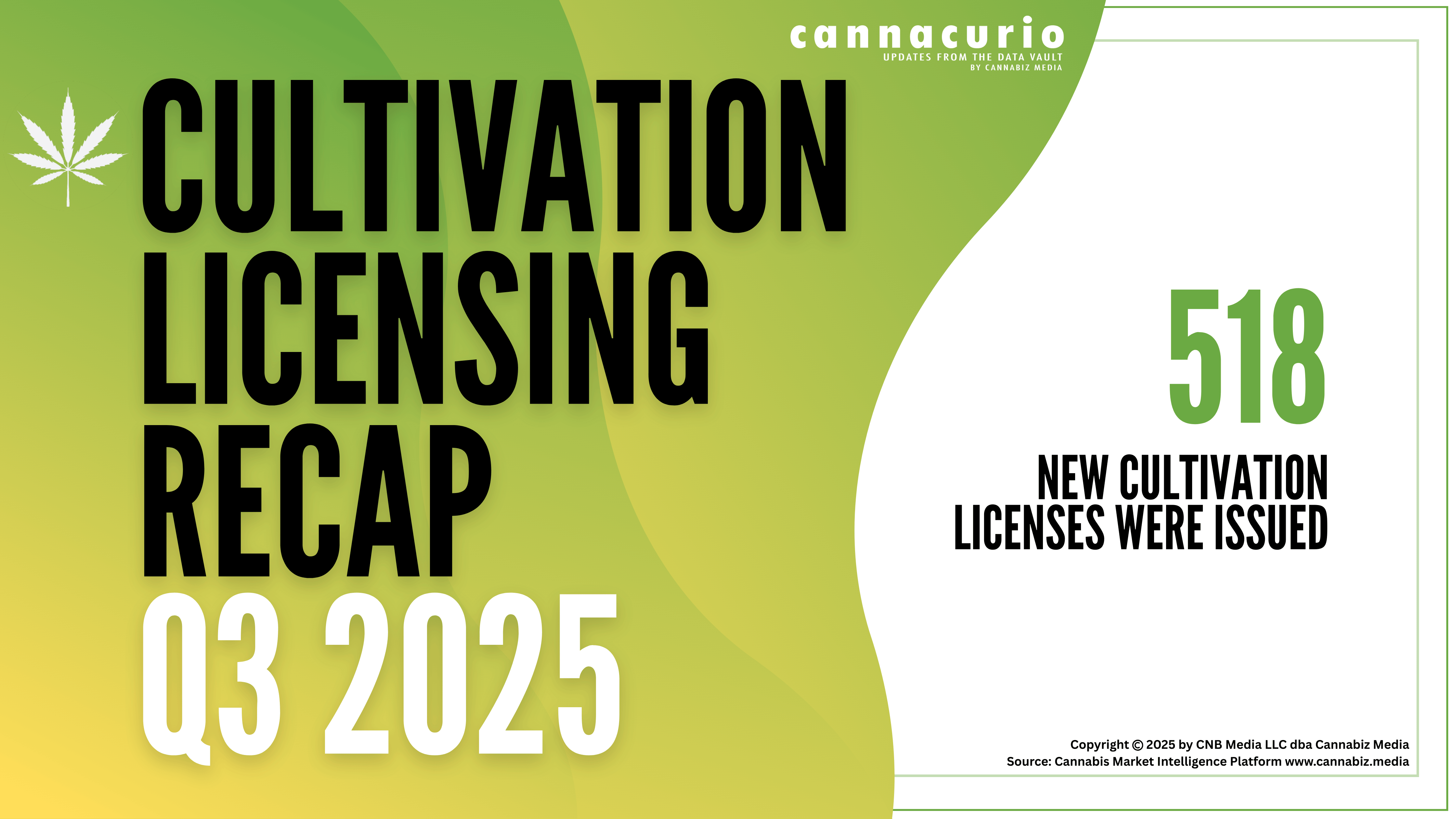
The Value of a Marijuana License in California Just Went Up (Again)
The value of a marijuana license to businesses depends on a variety of factors. For medical marijuana licenses, the specific conditions covered is one of the biggest factors. If a state doesn’t allow medical marijuana for chronic pain, for example, the value of licenses in that state is less than states that do cover chronic pain as a qualifying condition. But that’s just one of the reasons some states’ marijuana programs are lagging.
Other factors that affect the value of a marijuana license to businesses and investors run the gamut from real estate to intellectual property, federal background checks for license applicants, and more. And of course, whether or not a state allows recreational marijuana is another important factor.
The Value of Marijuana Licenses in California
With all of that said, California – a state where there are now 5,500 active marijuana licenses according to the Cannabiz Media License Database – ticks most of the boxes. This is a state where the value of business marijuana licenses has been increasing and shows no signs of slowing down. Just last week, the state Assembly passed a bill that will allow parents to administer medical marijuana to their children on school property. This is a significant change from existing laws. While medical marijuana has been legal for minors since the 1990s, it has not been allowed on school property because that would be a violation of federal law.
Now, Governor Jerry Brown will decide if he’ll sign the bill or not. If he signs it, parents will be able to administer medical marijuana in schools rather than having to pull their children out of school, take them off school property, administer the medical marijuana, and return them to school. The current process is extremely disruptive to the student and the entire classroom.
Unfortunately, even if Governor Brown signs the bill, school boards have the option to allow or not allow medical marijuana patients to receive their medication on school property. According to The Press Democrat, Senator Jerry Hill (D.), who carried the bill, cited a story about a 5-year old girl in Santa Rosa, California who suffered from a rare form of epilepsy. She needs to take cannabis oil with her to school for treatment. The school board prohibited it, but her parents argued that was a violation of the protections in place for disabled students. The court temporarily ruled in favor of the parents, but that ruling is still being reviewed by the judge and could be reversed.
This story is particularly significant since Santa Rosa is located in Sonoma County, which ranks among the top 10 counties in California for having the most cultivation, manufacturing, and dispensary licenses according to the Cannabiz Media License Database. Despite the fact that this girl lives in one of the most marijuana-friendly counties in the state, she’s facing significant barriers to access the medical marijuana she needs.
At this point, we’ll have to wait and see what Governor Brown does, but giving people more access to medical marijuana when and where they need it can only help to increase the value of marijuana licenses in California – a state where they’re already very valuable.
The Bad News
With good news often comes bad news. While California is on the brink of allowing students access to medical marijuana on school property, the state Legislature is also limiting some aspects of the marijuana market.
Last week, the state’s Senate passed a bill that would prohibit any alcoholic beverages that include marijuana. The timing is unfortunate given how many small and large companies (including global liquor brands) are developing marijuana-infused beers and beverages. According to CBS Sacramento, the bill was introduced because Californian bartenders were mixing CBD oil into drinks. This bill is now headed to the Assembly for another vote before it gets to the governor’s desk.
Let’s hope the bill that ultimately passes (if it does) separates infusions created by bartenders from those developed by properly licensed manufacturers. Not allowing a product that could generate significant revenue would definitely negatively impact not only the value of marijuana licenses in California but also the value of the entire industry. There is no doubt that marijuana-infused alcoholic beverages will be in demand in the future.
The Future of Marijuana License Values in California (and Other States)
It seems like the plan is to move full-steam ahead to build the marijuana market in California while balancing patient and consumer safety. Some decisions made to date are great for marijuana businesses and related license value, and others are not. This will be the norm in the short-term, but the industry is gaining massive momentum. It would be very difficult to stop it now, and many other states need to catch up.

.png)

